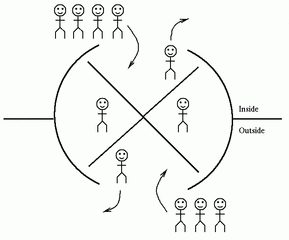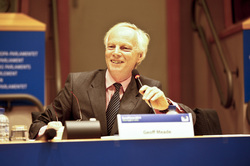When I explain point out that we don’t have a written constitution critics say that that’s not the point. The point is that you shouldn’t let issues of constitutional-style importance go through by such a relatively slim majority, because that’s just daft.
At the very least the result should be subject to approval or ratification by Parliament, like it would be in the Netherlands, where referendum results can go all the way to the King if necessary. And what was David Cameron doing saying the result would be considered binding, when it doesn’t have to be?
Listen, I say, don’t ask me, I'm the guy who got booed (affectionately, I like to think) when suggesting to a London audience earlier this year that the public shouldn’t get a vote on something so complicated and confusing and, ultimately, crucial, as leaving the EU..
And anyway what’s more democratic: a 52/48 victory for Leave in a public vote, or a (potential) two thirds-ish majority for Remain amongst MPs, who are of course the mandated representatives of the people in the first place?



 RSS Feed
RSS Feed